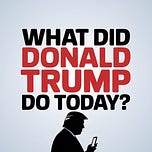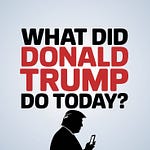The statements, interviews, and media appearances from Trump administration officials paint a picture of a second-term economic and trade strategy defined more by populist rhetoric and political showmanship than coherent policy. Donald Trump’s Truth Social posts, Commerce Secretary Howard Lutnick’s TV appearances, and interviews with advisers like Peter Navarro and Kevin Hassett illustrate a chaotic, contradictory, and often misleading narrative around tariffs, trade, and economic nationalism.
Trump’s social media posts employ incendiary language and economic oversimplifications, portraying tariffs as both retribution and salvation. He frames global trade as a hostile conflict, failing to acknowledge how tariffs act as domestic taxes that burden American consumers. His vague threats of “National Security Tariff Investigations” and conflation of fentanyl with electronics policy are strategically emotional but substantively thin. Similarly, his projection of a coming “Golden Age” built on deregulation and tax cuts ignores fiscal realities and international backlash risks.
Lutnick, Navarro, and Hassett each attempt to rationalize shifting tariff policies by citing national security and manufacturing revival, but they offer evasive or inconsistent justifications. Lutnick describes reclassifications of electronics tariffs as strategic repositioning, while Navarro asserts the same exemptions are temporary tactical delays. Hassett, meanwhile, downplays market instability and contradicts earlier no-exemption promises by claiming everything was “part of the plan.” Their conflicting explanations reveal a lack of internal coherence, further destabilizing investor and consumer confidence.
All three advisers also evade the legal challenges surrounding Trump’s aggressive use of executive power for trade policy—especially the questionable invocation of national security statutes like IEEPA and Section 232. When confronted with constitutional concerns, they deflect or distort rather than explain how their actions comply with congressional authority over tariffs.
Secretary of Agriculture Brooke Rollins adds another layer of obfuscation, defending the trade war’s impact on farmers with upbeat but evasive talking points. She minimizes real financial pain in rural communities while promoting aid packages and touting future prosperity without offering a clear roadmap. Her messaging is heavily partisan and deflects criticism of food program cuts and ethanol policy inconsistencies.
Finally, Trump’s legal filings in the case of Kilmar Abrego Garcia and his attacks on CBS News reveal an authoritarian impulse—seeking to ignore court orders and retaliate against unfavorable media coverage. His demand for FCC intervention against CBS exemplifies a dangerous willingness to politicize regulatory powers and suppress dissent.
Together, these accounts expose a second-term Trump administration pushing an erratic economic agenda rooted in grievance, nationalism, and executive overreach. Rather than offering a principled, data-driven strategy for trade and industry, the administration continues to rely on populist theatrics, legal ambiguity, and media attacks to rally its base—at the cost of transparency, economic stability, and democratic norms.













Share this post